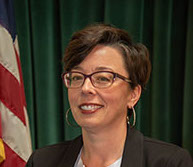STATE HOUSE – The General Assembly has approved legislation sponsored by Senate Health and Human Services Committee Chairwoman Melissa Murray and Rep. Julie Casimiro to require every school in Rhode Island to have a policy on the use of personal electronics that prohibits students from having access to them during the school day. The legislation now goes to the governor for consideration.
“While cell phones and other personal electronics have become a part of everyday life for most of us, they are also an immense distraction at school,” said Murray, a Democrat representing District 24 in Woonsocket and North Smithfield. “Fortunately, there is growing recognition that kids are better able to focus and succeed academically, socially and emotionally when schools are device-free. All students and schools in Rhode Island will benefit when kids can engage in real life with their teachers and peers.”

“The data is clear that cell phones are, at best, disruptive to the education process and in many cases, the use of these devices in the classroom is severely hurting the educational outcomes of our students,” said Casimiro, who represents District 31 in North Kinstown and Exeter. “I have seen firsthand the detrimental effects of cell phone classroom use as a substitute teacher in North Kingstown and it truly is hampering our students’ growth and progress. From simply distracting kids from paying attention, to fostering and exacerbating tension, stress and unruly behavior within the classroom, cell phones have become a significant impediment to our students properly learning and it’s time we ban their use throughout Rhode Island’s public school classrooms.”
The legislation – 2025-S 0771A, 2025-H 5598A – would require each public school to have a policy regarding the use of personal electronic devices on school grounds and during school-sponsored activities, including a prohibition on physical access during the school day, with exceptions allowed for assistive technology and other special needs specified in a students individual education plan or 504 plan, for medical needs such as glucose monitoring or for emergent multilingual learners for language access programs. Exceptions shall also be made in the event of an emergency.
To address privacy concerns in situations when a school might confiscate a device held by a student in violation of the policy, the bill was amended to add a provision that prohibits schools from searching the contents of any student’s personal electronic device.
The legislation requires each school district and charter school to file its policy with the Department of Education. The bill would take effect on Aug. 1, 2026, in time for the following school year.
Proponents of the legislation note that studies consistently show that personal electronic devices take a serious toll on students’ ability to focus in the classroom and their overall mental health, and that phones also contribute to classroom disruption. Educators report they are forced to compete for attention, students have trouble concentrating and behavioral issues escalate more quickly.
In 2022, several organizations of pediatricians and psychiatrists declared a state of emergency in child and adolescent mental health in Rhode Island. Removing or restricting cell phones in public schools is a step toward supporting students academically, socially and emotionally – helping them learn and thrive, the sponsors note.
Currently, 15 states have passed laws or enacted policies that ban or restrict cell phone use in the classroom and some of the largest school districts in the country have implemented similar policies.
Here in Rhode Island, several districts and schools have already developed policies in collaboration with parents, social workers, educators and administrators.
“The results are positive: students in these communities are more attentive, engagement has improved, and behavioral problems have drastically declined,” notes a release on the effort. “Beyond the classroom, there is eye contact in the hallways, loud chatter has returned to the lunchroom, and social connections are thriving again.”








